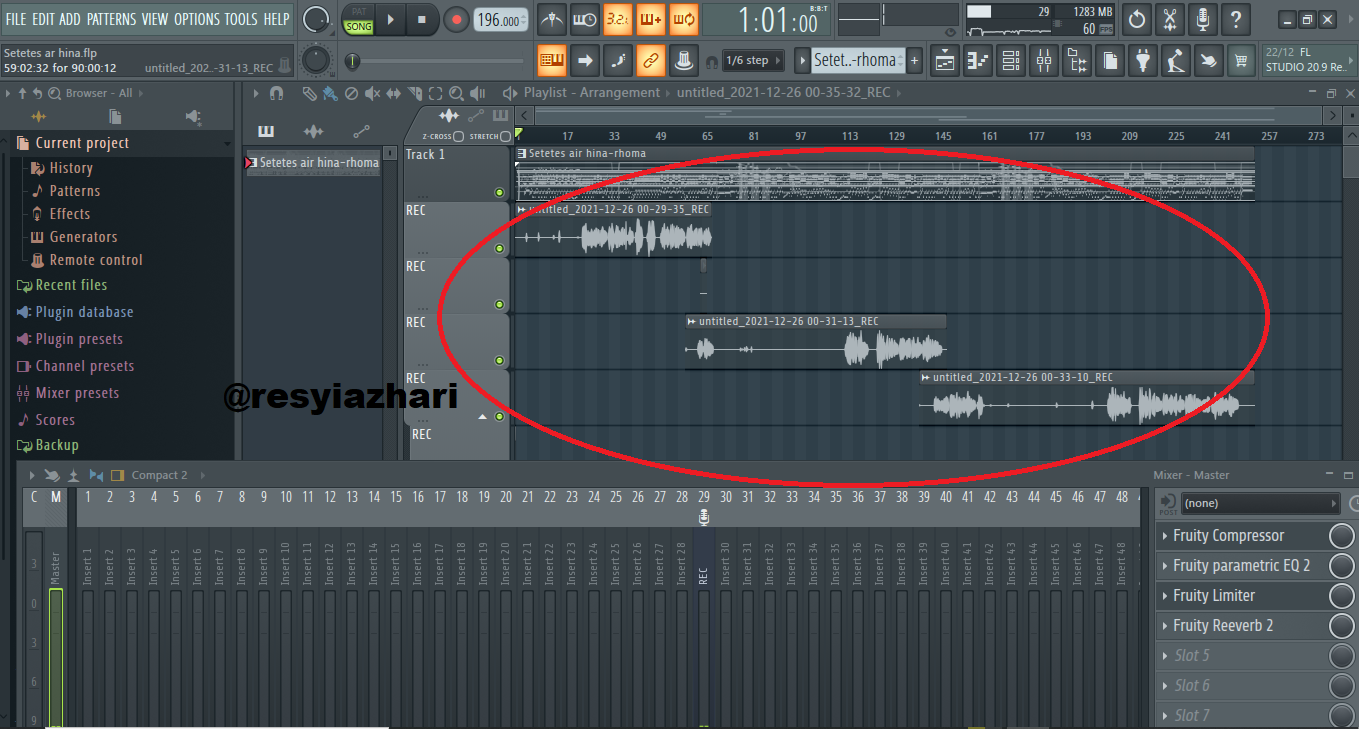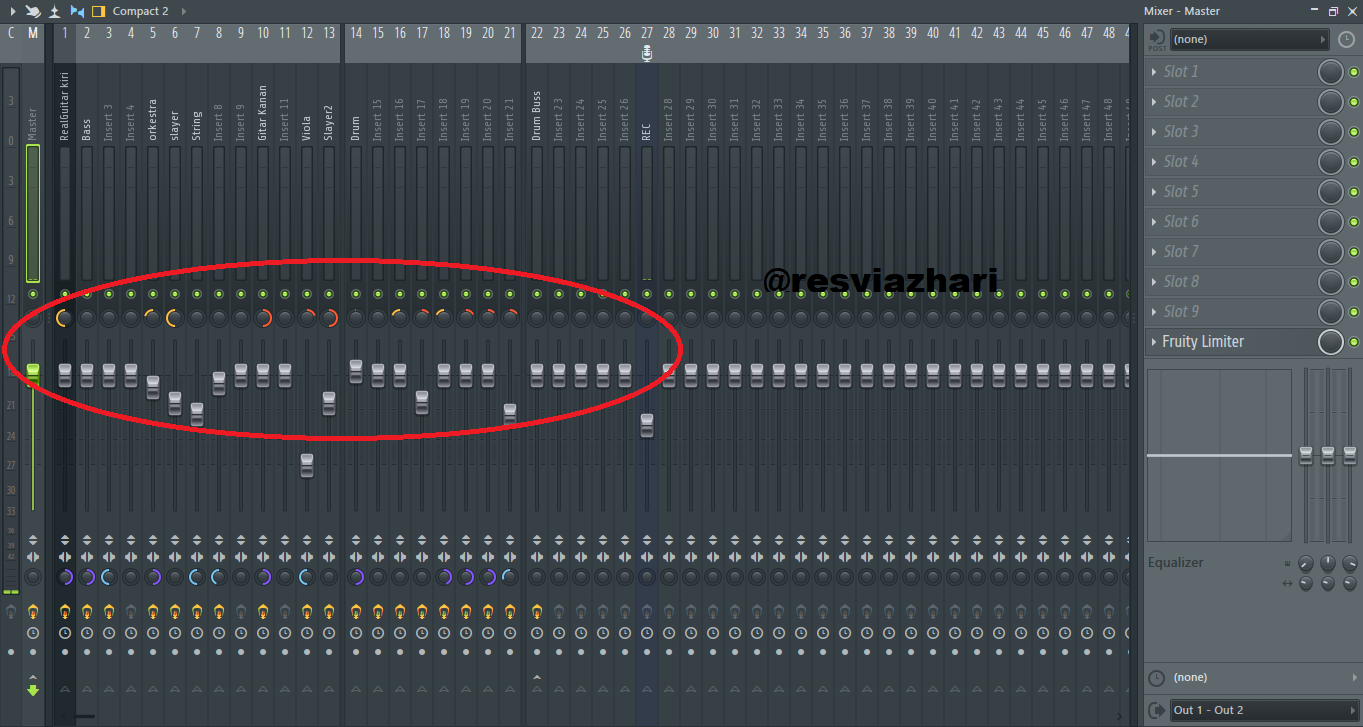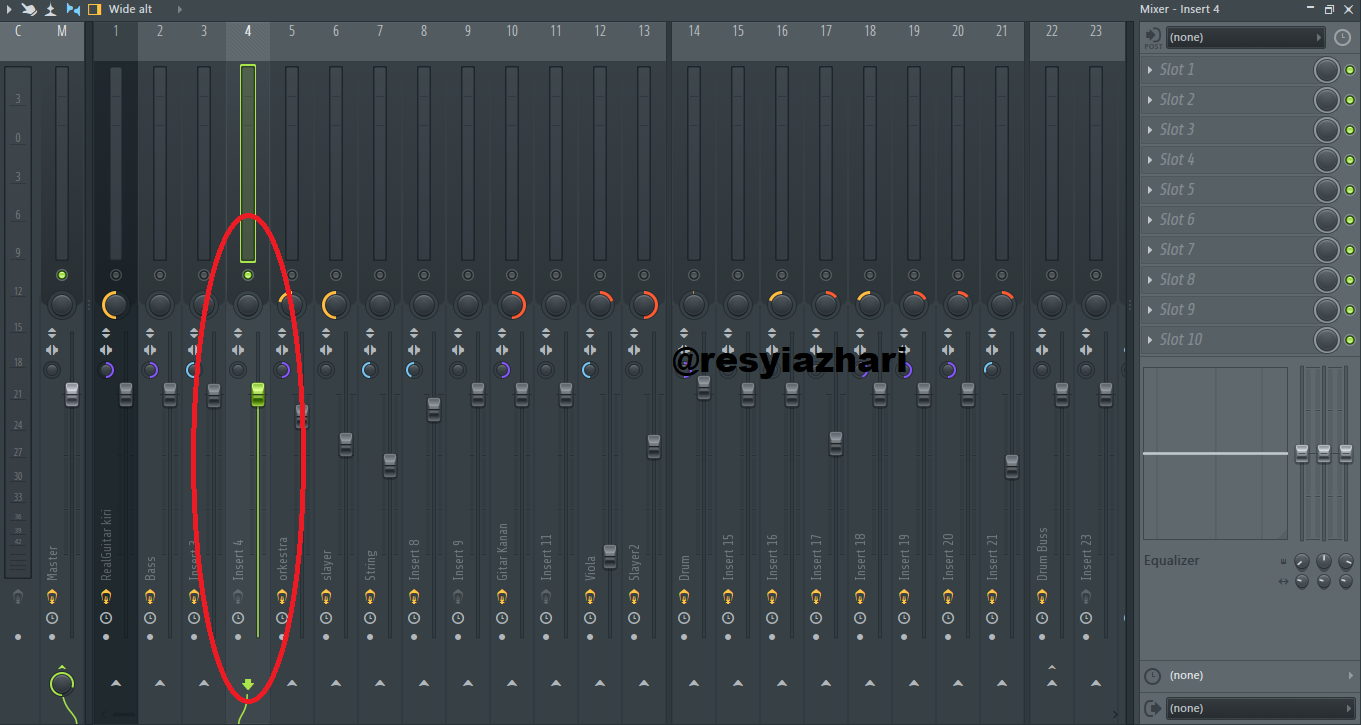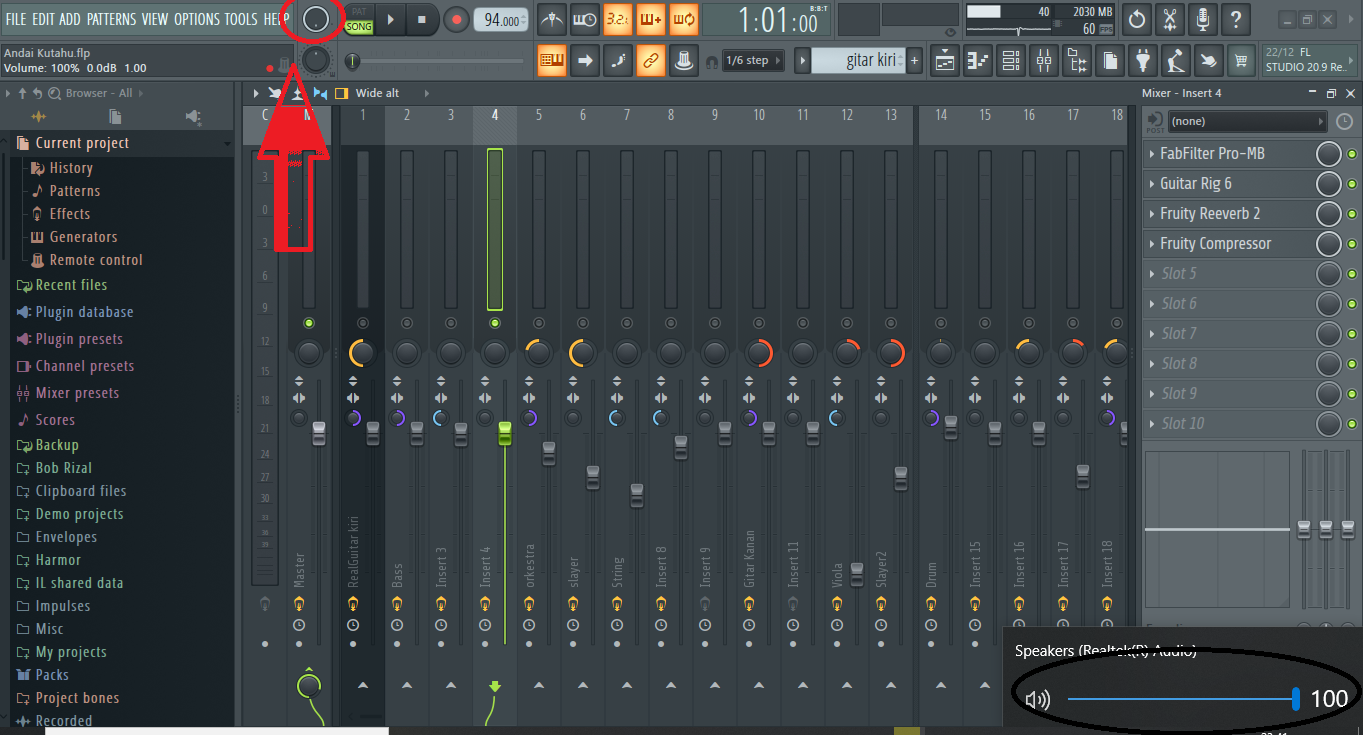Notes:
This post does not mean that I am a professional in the field of music production. What I have written I have heard from my teachers and I am also a student and still learning or experimenting. From that, I really need input from friends so that I can also gain a lot of knowledge.
“Mixing” in music production is the process of mixing all instruments into a product that has dynamics and is beautiful to hear. What effects are used in a "mixing" and how to adjust it does not have a standard formula, because each input process carried out with instruments or vocals produces a different sound. For example, the character of the voice between one person is different from another, so the way of processing it is also different. One vocalist has more character on a frequency, while another is less on that frequency. Even so, but in essence, the frequency range of a person's voice remains in the range that we have discussed in this post
Even though the input sound is different, and the "mixing" method is different (not standard), we must know the correct "mixing" steps.
To do the mixing right, we definitely don't want to make a mistake. Here we will discuss the mistakes when "mixing" especially for beginners:
1. Does not provide data to be "mixed" properly (does not do "mixing" preparation).

Before carrying out the "mixing" process, you are required to prepare the data to be "mixed" perfectly. For example, in vocals, you have to adjust the pitch control, remove the noise, adjust the fade in and fade out, and so on. Likewise, the preparation of other instrument files must be absolutely perfect. Working on "mixing" is a job with creativity while doing preparation before "mixing" is the main thing that must be done before being creative. What happens if we don't prepare perfect data when doing the "mixing" process, our work will be disrupted and even eliminate the mood to do the "mixing" process.
2. Don't listen to the whole song.
We recommend that before we do the "mixing" process, we have to listen to the instrument or song as a whole. Listening to the song as a whole before mixing it will really help us in exploring our creativity. By listening to the instrument or song, we can analyze where the direction of creativity will be. And also can provide ideas what should be added and subtracted in the process.
3. Not doing the balancing.

What often happens when I'm "mixing" is that I'm too hasty to give an effect to an instrument without first balancing it. the thing is that before entering the "mixing" stage, we must first balance one instrument with another. By doing the balancing, we can adjust what instrument should be reduced or increased volume. So that after balancing, there will be good harmonization without the volume of one instrument to cover the other instruments. By balancing, we can also avoid excessive or even ineffective effects. An example that is often done by beginners is when they get the data, they immediately give an equalizer effect to an instrument, so that other instruments are drowned. Then the covered instrument will be added (boost) more frequencies which will eventually cover other frequencies, and it is done continuously.
4. Do not understand the function or parameters of the installed plugin.

The most important thing in doing "mixing" is knowing the function of the effects that we use. For example, what is the function of a compressor, limiter, equalizer, and others? Some can be read in my post this
this
and this
The conclusion is that we must first understand the function of the parameters of an effect, so as not to give the impression of "try and error".
5. Too much love for an instrument.
In doing the “mixing” process, we must be fair to all instruments, so that there is no favoritism. For example, we love the Guitar instrument too much, so we spend too much time processing the instrument which in the end will not be optimal on other instruments. Or what is more fatal is that we accentuate the sound of the instrument we like and cover up other instruments.
6. Spend a lot of time on one instrument.
Doing very detailed processing on an instrument at the beginning of the "mixing" job is wrong. It's not good to do detailed work on an instrument at the beginning of the work because it will result in wasting time on one instrument and result in not focusing on other instruments, and also when processing other instruments, the first instrument will also need changes.
7. Too long to solo one instrument.

To hear a clear sound on an instrument, it must be played solo. But if you take too long to solo it is also a mistake, because it will also be in vain. For example, we do "mixing" and solo on Guitar. Then give effects that we think sound good, but when sounded together with other instruments will sound inappropriate. Don't go solo for too long, but also play with supporting instruments such as Bass, Drums, and Vocals.
8. Do not do Automation.

Instrument automation is needed to make music live and colorful. An instrument does not have the same volume and panning from the beginning of the song to the end. For example, in a song, there is an acoustic guitar intro, and then it only becomes an accompaniment instrument. Thus, the volume of the guitar must be larger or dominant at the time of the intro and then reduced as necessary and the volume will be increased again when needed.
9. Doing Mastering at the time of Mixing.

Basically mixing and mastering are different things. Mixing is the process of mixing various instruments into one, according to the genre, and is beautiful to hear. while how wide, how big the volume, and others are done at the time of mastering. Most beginners usually give effects to the channel master which will eventually make the results different colors and no longer natural.
10. Think Technically.
When we do the “Mixing” process, we don't always have to put ourselves as engineers, but we also have to be able to become laypeople. Sometimes music when we listen to it professionally, we find no fault in the results. However, if heard by ordinary people there are some that are not appropriate.
11. Mixing Without Stopping
If the work is not a deadline, we should take a break every few minutes. The goal is that we can refresh our hearing so that when we resume work, it will be like hearing new music/songs. But if we continue to do work for hours without stopping, it is possible that our hearing will be disturbed or suggested by an instrument that we have listened to over and over again. It would be nice to use the time to rest without requiring excessive energy or imagination. For example, take a walk, look at pictures, and so on. And it's even better if you don't rest while listening to music because it will also affect your hearing and suggestions.
12. Listening With One Monitoring Tool.
A professional Studio usually does not use a single monitoring tool. This was done to see the difference between one monitor and another. Basically, no monitoring tool is completely flat, it's just close to flat, and each speaker has a different output character. If we use at least two different monitoring tools, we can take the middle point that we make as production results.
13. Mixing on Loud Or Small Volume.

Doing the mixing process at a loud or low volume makes the sound of the instrument unnatural. Loud sounds will usually cause the entire sound of the instrument to be heard clearly, making it difficult to judge an instrument. Conversely, if the sound is too small, the bass will not be heard, so sometimes we increase the volume of the bass. By setting the volume to be loud will also cause the ears will feel tired.
Thus my discussion of "mixing" mistakes for beginners, once again I want to emphasize that I am not a professional but still in the learning stage. Hopefully, my post will be useful for myself and my friends. Thanks for the support from friends.
~~~ embed:1475546407964536835 twitter metadata:dGV0cmFoZWRyb3NlcGh8fGh0dHBzOi8vdHdpdHRlci5jb20vdGV0cmFoZWRyb3NlcGgvc3RhdHVzLzE0NzU1NDY0MDc5NjQ1MzY4MzV8 ~~~
The rewards earned on this comment will go directly to the person sharing the post on Twitter as long as they are registered with @poshtoken. Sign up at https://hiveposh.com.
Mastering is always the main question in creating music, or rather bringing it to perfection. From year to year, some things in this area remain unchanged, and something comes with new trends in the work on sound quality. This is a good post to think about, as it is this part in writing music that is one of the main ones along with the idea of the track. One thing must always be remembered - that each instrument or musical part in a track must occupy its own niche in the frequency range, fortunately Fab Filter and Ozone have long given us the opportunity to independently do primary processing of sound quality. I repeat once again - an interesting post, such topics are interesting to many musicians! Keep it up!
It's true what you said. Each instrument has its own frequency. I also wrote that in my post yesterday
The information you share with us is very useful for those who work in the music field, not only mixing, but also in recording, in my case, when I record music, karaoke styles, I always find myself with the dilemma that the tracks are of very poor quality, the editing process can improve a lot, as you mention in many tips.
The editing process is a very arduous job that can take months even on a track, it requires good mixing programs, sound and all that it implies. In my case, I have many limitations, but I do the best I can, always looking to improve.
Your techniques and teachings will surely help me a lot, as far as the program and my limited knowledge will allow me. Thank you for sharing with us valuable help material.
I've been learning all this time, but unfortunately I don't have good equipment. Example: when mixing monitor speakers are needed, but I only use headphones for 1 dollar
Thanks to all Who has appreciated my writing. Special to @appreciator for being here. Thank you so much
Congratulations @resyiazhari! You have completed the following achievement on the Hive blockchain and have been rewarded with new badge(s):
Your next target is to reach 3500 upvotes.
You can view your badges on your board and compare yourself to others in the Ranking
If you no longer want to receive notifications, reply to this comment with the word
STOPCheck out the last post from @hivebuzz:
Support the HiveBuzz project. Vote for our proposal!
get that gap icoh kali nyoe. beureutoh umpang
wkwkwk. adak meujeut tameulake beu icoh sabe-sabe. nyan hana long tukon aleh pakon get that akai jih
raseuki tak kan kemana.
very useful mixing knowledge, some of the things above, I often do it, once I know it's wrong I won't repeat it, thanks @resyiazhari